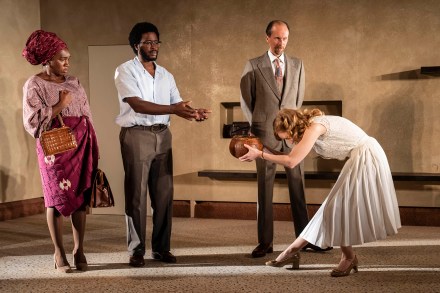A treat for nostalgic wrinklies: Punk Off!, at the Dominion Theatre, reviewed
Punk rock, packaged, parcelled, and boxed up as a treat for nostalgic wrinklies. That’s the deal with Punk Off!, a touring show that recently completed a lap of the country at the Dominion Theatre. Most of the audience were there to recall their rebellious heyday. ‘It’s about to get really, really loud,’ announced the compère, Kevin Kennedy, as the four-piece band hammered out ‘Sheena Is A Punk Rocker’ ‘and ‘If the Kids Are United’. Both hits sounded eerily unfamiliar. Why? Those raucous, pulsing rhythms can’t be turned into elevator jingles or a background drone at a shopping mall – so we rarely hear them. Just as well. Kennedy rattled through












